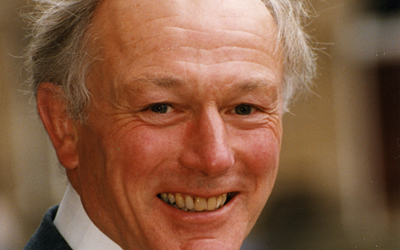As part of our Platinum blog series marking the Society's 70th year, we hear from Joyce Murray, founder of Grace Chocolates which is a social enterprise supporting women who have touched the criminal justice system towards fulfilling employment.
A lot has changed in the 70 years since the Law Society of Scotland was founded. Life in 1949 was very different: peacetime conscription came into force for men aged 18-26. Post-war rationing of clothing finally ended. And Britain signed up to join NATO.
Meanwhile, prison life for women has come a long way. Since the 1940s women in prison have been supplied with a uniform. It’s not that long ago since women in HMP Cornton Vale were issued a wraparound pinafore and utility underwear. After the uniforms were washed, the women prisoners had to choose the first pinafore and underwear from the top of pile: share and share alike…
A lot has changed since then – and not just the clothing. Rehabilitation has also been transformed. Compared with the 1940s, when there was little or no rehabilitation, today there are programmes in place to help offenders adjust to life after prison.
A unique approach to rehab
The model we operate at Grace Chocolates is unique in Scotland. We’re a social enterprise – which means we aim to deliver a profit and use 100% of the profit for the benefit of the community. In our case, we seek to support women who have touched the criminal justice system towards fulfilling employment.
Based in Stirling, we make hand-made chocolates, which are beautifully wrapped and packaged. In addition to being available to buy from our website they are distributed to retail outlets such as the Scottish Parliament gift shop. We’ve also supplied events for organisations including CMS, the Institute of Directors, PwC and the Law Society of Scotland.
The women can engage with our service as part of our regular production days and with our Making Positive Changes: a twice weekly programme delivered over a six-week period. The women’s work experience leads to a food hygiene certificate and chocolate-making skills in addition to building their self-esteem and confidence: some of the barriers they face when entering the world of work. We also support them to think differently about themselves and work. Some weren’t even aware that working is an option as they reintegrate into their families and communities.
As part of our programme, we work in partnership with other organisations: Barclays Life Skills helps with recognising strengths, writing a CV and interview techniques. And Disclosure Scotland informs the women with information around what they need to declare – and not declare – to potential employers.
Our work is working
Grace Chocolates is a relatively new enterprise. But we can already see that it’s having a positive impact. Typically, 43% of women prisoners reoffend within one year of leaving prison. Our reoffending rate so far is, as far as we are aware, less than 5%.
Of the 21 women who have entered our programme, four have found part-time or full-time work and one has gone on to further education. Only one woman has reoffended – and the judge decided on a non-custodial sentence in part because she was engaging with the Making Positive Changes programme.
Our work is working. But we want to be able to do more. We would like to be able to scale up our social enterprise and help more women make the transition out of the criminal justice system. So we’re looking to work with the government, the law profession and other private enterprises to create more opportunity for women offenders and their families.
To find out more about Grace Chocolates email gracechocolatesuk@gmail.com or visit www.gracechocolates.co.uk.

Platinum blog series - is tax taxing in Scotland

Platinum blog series - VAT a simple tax?



